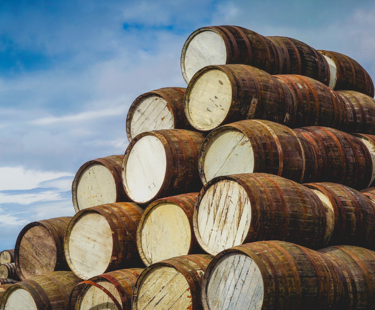The Scottish Anti-Illicit Trade Group (SAITG) has been relaunched with the stated aim of combating counterfeiting and intellectual property crime within Scotland.
The group comprises representatives from the Scotch Whisky Association, Police Scotland, Trading Standards, the Wine & Spirit Trade Association, and the Anti-Counterfeiting Group.
Supported by the UK Intellectual Property Office (UKIPO), the SAITG will seek to develop best practices and strategies to address the supply of counterfeit goods in Scotland, while also informing the public about the consequences of these illicit activities.
Research from the UKIPO indicates that almost one in three respondents (29%) across the United Kingdom report having purchased counterfeit goods in the past. In 2021, the estimated value of imported counterfeit goods into the UK exceeded £7 billion.
Law enforcement agencies consider the tackling of these illicit activities to be an ongoing challenge. As an illustration, Operation Vulcan, conducted by Greater Manchester Police in 2022, resulted in the closure of 72 premises involved in the sale of counterfeit goods and the seizure of 226,000 counterfeit vapes and nearly £250,000 in cash from the Cheetham Hill and Strangeways areas of Manchester.
The perception that counterfeiting is a ‘victimless’ crime is frequently encountered; however, this assertion is not supported by the evidence.
Consider the experience of opening a favoured, and potentially expensive, bottle of whisky only to discover it was not genuine, resulting in disappointment and financial loss for the consumer, and potentially damaging the reputation of the brand owner.
In a marketplace where counterfeit goods are prevalent, consumers may find it challenging to distinguish between genuine and fake items, which can ultimately erode confidence in that marketplace.
Furthermore, individuals involved in counterfeiting are often connected to more serious criminal enterprises, with profits from counterfeit goods potentially being used to fund other illegal activities. These criminal activities frequently involve the exploitation of vulnerable individuals, who may be coerced into working without pay or for minimal remuneration. There is a societal responsibility to address counterfeiting and safeguard those vulnerable to such exploitation.
The participation of the Scotch Whisky Association and the Wine & Spirit Trade Association in the group is notable, given the challenges faced by the Scotch market concerning counterfeit products, particularly within the secondary market.
Certain prestigious and vintage bottles can command prices in the thousands of pounds on the secondary market, with The Macallan and Springbank being the most frequently traded in the past year. When a bottle attains such high value, opportunities for illicit profit-making arise.
Consequently, some brands and sellers have implemented more stringent measures to assure consumers of product authenticity, such as issuing certificates of authenticity, embossing bottles with unique patterns or holograms, and employing radiocarbon dating to verify vintage.
The relaunch of the Scottish Anti-Illicit Trade Group is likely to be welcomed by businesses across Scotland as part of ongoing efforts to combat counterfeit goods.
Further information regarding the Scottish Anti-Illicit Trade Group can be found in the UKIPO’s publication at https://www.gov.uk/government/news/scottish-anti-illicit-trade-group-relaunches-to-combat-counterfeit-crime, and additional resources concerning intellectual property crime and enforcement are available at https://www.gov.uk/government/collections/intellectual-property-crime-and-infringement#managing-ip-crime.

